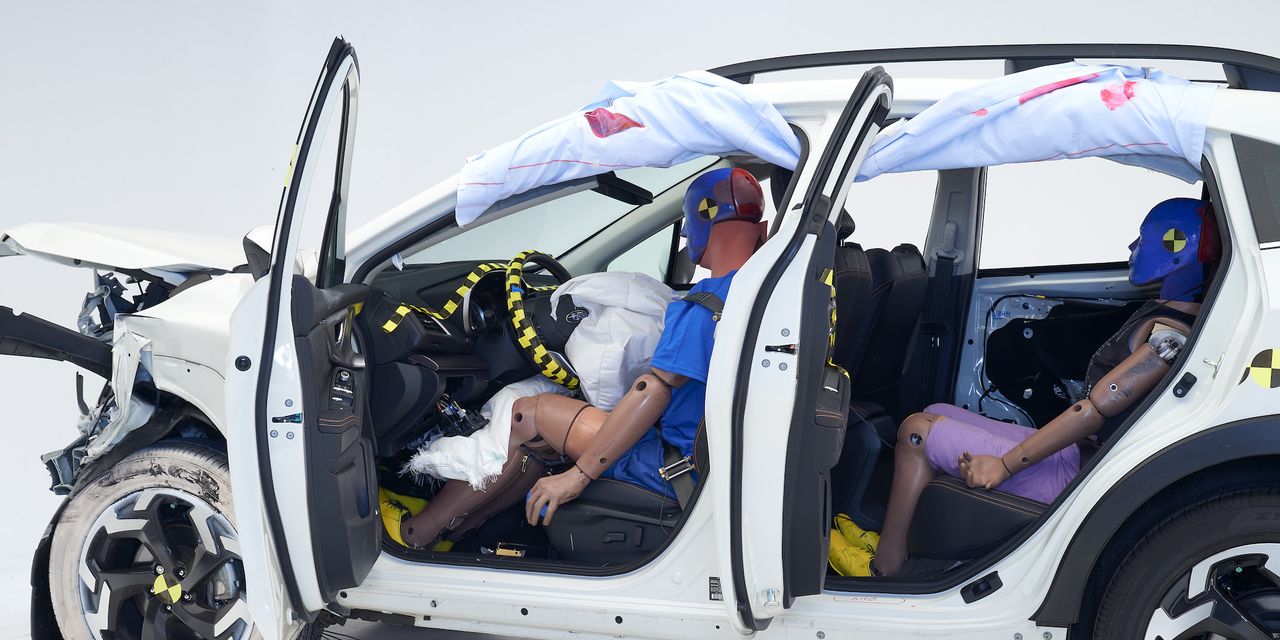For rear-seat passengers, even the safest small car isn’t as safe as it could be. In a new round of safety tests, just two small sedans got a passing grade for protecting people in the back from a frontal-impact crash.
One of America’s two major car safety testers made its crash tests more difficult this year. The results have not been encouraging. But tougher tests are meant to push higher standards, so the outcome could drive improved safety technology in the long run.
America’s two crash testing agencies
Many countries crash-test cars, but America benefits from the work of two safety testing organizations.
One is the federal government’s National Highway Traffic Safety Administration (NHTSA). It was not involved in this round of tests.
The other is not a government effort. A group of car insurance companies funds their own safety lab — the Insurance Institute for Highway Safety (IIHS). Insurers make more money when accidents are rarer and less deadly, so the insurance industry uses the IIHS to push the auto industry to develop safer cars.
The institute’s tests are generally regarded as tougher than government tests, partly because it can modify its testing programs without a lengthy public comment period.
That’s what it did this year.
Plus: The most and least reliable car brands, according to Consumer Reports
New, tougher tests
The IIHS has long performed a frontal-overlap crash test that represents a vehicle crashing into another slightly offset, like the crashes common in intersections. The test happens at about 40 mph and mimics a car crashing into a vehicle of similar size and weight.
In 2023, the agency added a dummy to the rear seats, representing a 12-year-old child.
The agency rates vehicles as Good, Acceptable, Marginal, or Poor based on the likelihood of injuries to the driver and, now, second-row passenger.
The IIHS published its first round of the new tests in March, using a group of midsize SUVs. All the vehicles protected their driver well, but the results for rear-seat passengers were worse. Just four of the 13 SUVs tested earned a “Good” score for protecting rear-seat passengers.
From the archives (Nov. 2022): The eye-opening results scientists found when they studied bug splats on cars
Today, the agency released similar results for a group of compact cars. They did worse.
None of the five cars tested earned a “Good” score.
“These results highlight one of the key reasons that we updated our moderate overlap front crash test,” said IIHS President David Harkey. “In all the small cars we tested, the rear dummy ‘submarined’ under the seat belt, causing the lap belt to ride up onto the abdomen and increasing the risk of internal injuries.”
Submarining, the institute explains, causes the seatbelt “to slide from the hip bones onto the abdomen, where it can cause internal injuries.
In the three poor-rated vehicles, measurements taken from the rear dummy also showed a moderate or high risk of head, neck or chest injuries.”
Related: The safest new cars of 2023
Bad news can trigger changes
The institute says it “launched the updated moderate overlap front test last year after research showed that in newer vehicles, the risk of a fatal injury is now higher for belted occupants in the rear than for those in front.”
That’s not because rear-seat safety is getting worse. It’s because front-seat safety is getting better. Front-seat passengers have airbags in front of them and often have “advanced seat belts that are rarely available in back.”
With its tougher standards, the institute may shame automakers into installing better seatbelts in the rear of most cars.
The results
| Vehicle | Overall Rating | Driver Restraints & Kinematics Score | Rear Passenger Restraints & Kinematics Score |
|
2022-2023 Honda Civic HMC, |
Acceptable | Good | Poor |
|
2023 Toyota Corolla TM, |
Acceptable | Good | Poor |
|
2022-2023 Kia Forte 000270, |
Poor | Good | Poor |
|
2022-2023 Nissan Sentra NSANY, |
Poor | Good | Poor |
|
2022-2023 Subaru Crosstrek FUJHY, |
Poor | Good | Poor |
This story originally ran on KBB.com.
Read the full article here




